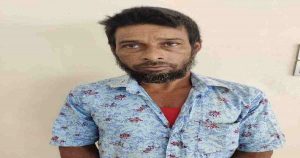Two recent remarks made by the chairman of the National Human Rights Commission Dr. Mizanur Rahman have irked a section of the police administration because those challenged the police’s discretion to shoot at people on the charge of being extremists or on the plea of ‘cross-fire’ or ‘encounter’. The first one relates to a concocted ‘crossfire’ on a young cng 3-wheeler driver by a sub-inspector of police of the Sher-e-Banglanagar Thana of the Dhaka Metropolitan Police several weeks ago. The second one is about firing shots at another young man’s leg and waist by touching his body with the gun.In the first case it transpired that the ill-fated 3-wheeler driver was the victim of wrath of the uniformed man who reportedly had illicit relationships with the former’s wife, because he protested. DMP authorities promptly arrested the SI and even transferred the OC from the thana to the Rajarbagh police lines. The place of occurrence of the concocted ‘crossfire’ was Taltala in the Sher-e-Banglanagar area of Dhaka city. The HRC chairman visited the victim at the hospital and was appalled to see the man with both his legs severely injured just because of the illegal shooting in cool blood. The cng 3-wheele driver was to some extent at least lucky, because his attacker did not decide to kill him with the bullets spread on his legs, which were enough to get the job done. In that case possibly there would not have been the case of an injured man to be visited by the HR Commission chief.
In the second case the HRC chief after visiting the ill-fated young man shot in his leg and waist, stated that the law does not authorise anybody to shoot people like this. The HRC chief had also said that anybody speaking for human rights cannot be lebelled as militant. His comment on the second incident attracted reaction from the Dhaka Metropolitan Police. DMP Commissioner Benazir Ahmed has been quoted to have told a news conference at the DMP media centre the other day that it was anybody’s volition not to term an outlawed organisation illegal or militant. But this would amount to violation of the law. According the DMP chief Nafis Salam alias Uday, the young man shot in his leg and waist was a member of the outlawed organisation Hizbut Tahrir.
The DMP in an earlier statement had said that the remark made by the NHRC chief would provoke militancy. In reply the NHRC in another statement said that police has no right to shoot at anybody even if a person is involved in an outlawed organisation. The DMP commissioner told newsmen that it was not proper to make a wholesale allegation that the chain of command of the police force has broken down, and the NHRC has the right to investigate into the allegation. Average citizens are appalled to read or hear the arguments over the extra-judicial shootings, killings and injuries. Any opposition political meeting these days is replete with tales of fear activists express of falling victims to attacks by either political opponents or the law enforcers. Dr. Mizanur Rahman lives in the society and mixes with people from both the government and the opposition in discussion meetings, seminars and roundtables, and his responses in these cases might be the reflection of the pulse in the common man’s mind. His reactions possibly merit more serious scrutiny than we normally consider them to deserve.
Let’s view the whole thing as a serious issue instead of charting the cheap path of blaming either one or the other. Because, anybody who would in future be the NHRC chief would possibly use even more harsh language to criticise or oppose shooting at unarmed people, and whosoever takes over as DMP chief would have to speak in defence of his force. But the matter does not end there. The media has reported on Tursday (November 11) the death of two alleged ‘bandits’ in an ‘encounter’ with the Rapid Action Battalion (Rab) in the Sunderbans forest area. The event has followed the death of 15 people, accused of being ‘bandits’ in the same region in ‘encounters’ with police days after the holy Eid ul Azha. The local people complained – their complaints aired by the news media – that the allegations of ‘encounter’ were untrue and not even a couple of the victims could be referred to as ‘bandits’. The recent developments centring on shooting at people killing or injuring them, including those mentioned above, have made people take such news releases with cautious doubt. This caution cannot be blamed. Dr. Mizanur Rahman’s remarks should also be taken as words of caution, because allegations of willful shooting at people for narrow personal gains have come under open trail in the court of law, or departmental action.
We know some amendments have been made in the legislation after the much publicised seperation of the judiciary from the executive. And Police officers can take cognizance of acts of crime to take an offender to the court for justice. However, should a policeman taking cognizance of a crime also at once make a judgement of shooting at the man allegedly committing the crime, except in self defence when his own personal safety is endangered? That too just to immobilise the alleged criminal, not to kill him, because he might need to be brought to justice. These are serious questions to be discussed and deliberated upon to take enlightened decisions. The verdict awarded in the Sorth Korean ferry dissaster trial on Tuesday should be an eye-opener. The Chief Engineer of the ferry was convicted of murder because he ignored the safety of his colleagues even after he saw them injured and facing death when the ferry Sewol was drowning. The judges gave him 30 years in prison for the murder conviction and Lee, the pilot of the ferry 35 years in prison for criminal neglect of duty. When death can be awarded and to whom, should be discerned from this case which was filed following the death of more than 350 people most of them students of schools in the disaster in last April. National Human Rights Commission chief Dr. Mizan’s angry reaction for shooting at Nafis Salam alias Uday amounts to saying, word militant is not inscribed on anybody’s face.




